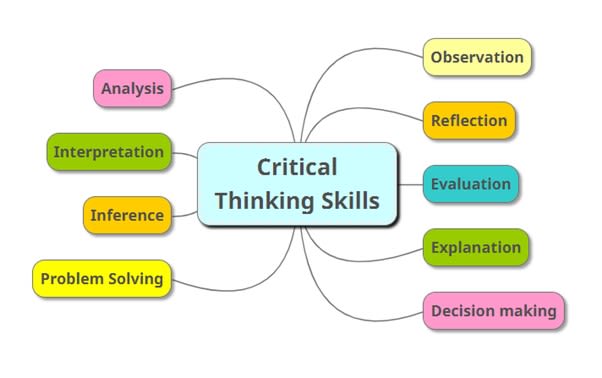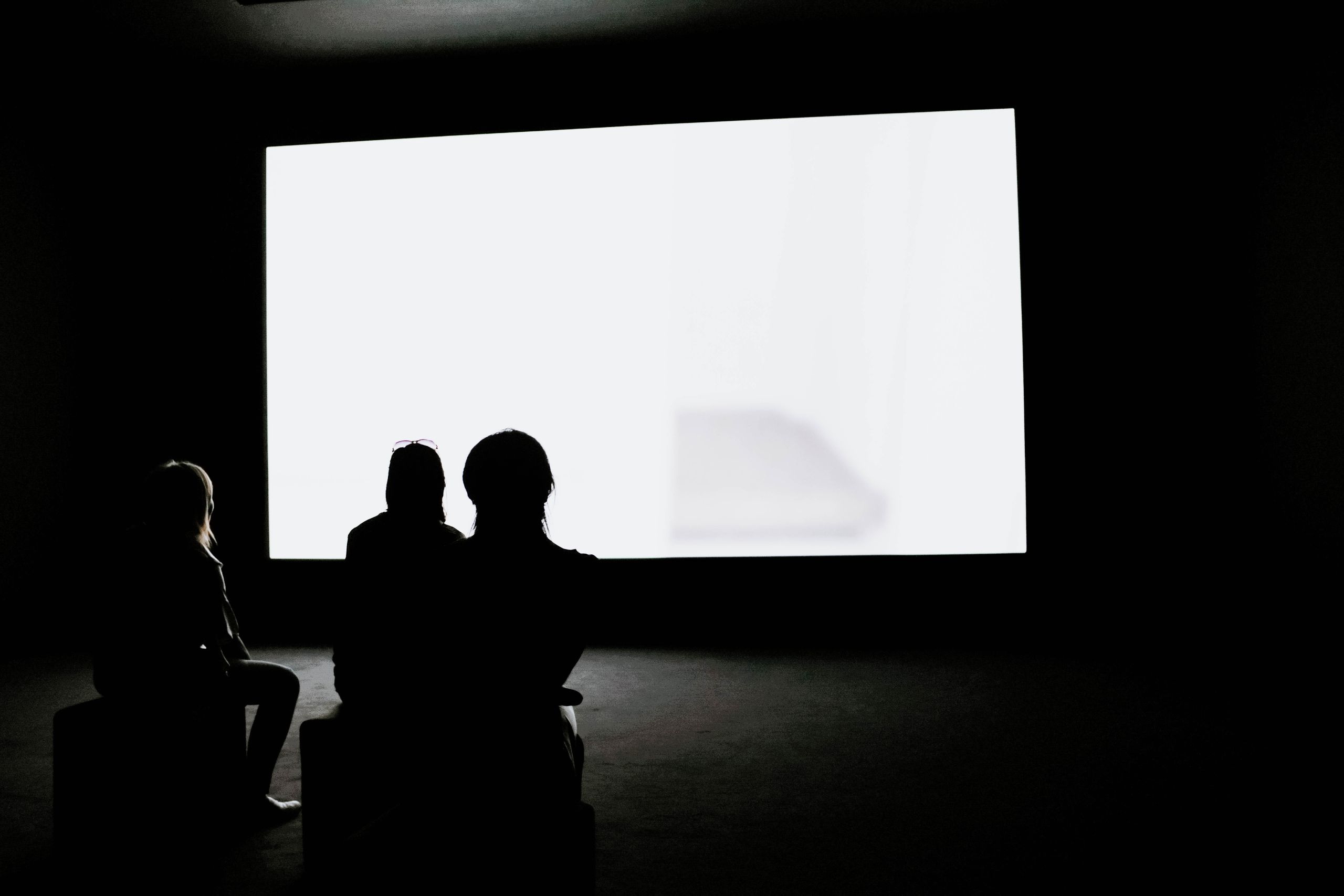Critical Thinking
Experiential Education

Critical thinking is the ability to question, reason and analyse information before making judgements and assumptions. Critical thinkers approach decision making and problems in a rational, systematic way and build well-informed arguments. This module will provide you with the tools to help you develop this important academic and employability skill.
Overview
What you will learn:
- What critical thinking is
- The skills needed for critical thinking
- The importance of critical thinking as a student
- The tools and strategies to become a critical thinker
Contrary to how it sounds being a ‘critical thinker’ is not the act of criticising. Rather, it is considering all available information to enable a reasoned judgment. It is going beyond the obvious to deeper reflection and questioning – beyond ‘what is this?’ to ‘what does this mean?’. It is the opposite of jumping to a conclusion or making assumptions, because it involves actively seeking out the full story before making a judgment.
It means looking at things from as many perspectives as possible. It can involve using the knowledge we already have or seek additional information to ensure an information decision. Critical thinkers take into account their context and base judgments on all the information that can be drawn together at any given time. As a critical thinker we must be as objective as possible, and ready to acknowledge when we are wrong.

What is Critical Thinking?
Critical thinking is just deliberately and systematically processing information so that you can make better decisions and generally understand things better (see Patterson 2017).
Critical thinking is the skill of taking a metaphorical step backwards and examining an issue from as many angles as possible in as objective a manner as possible, in order to make a considered judgment.
Court judges do this every day: they consider the crime, the person, the victims, the law, and the circumstances or context in which the crime was committed. They make a judgment based on all the information they can gather from police, witnesses (including expert witnesses), the accused person, the jury, and everyone and everything involved before making a judgment. Once a judgment is made, they again critically examine their options: release, or prison, work orders, fines, for example. Their final decree is then based on further critical judgment of the possible consequences of any punishment that they may impose.
What is Critical Thinking? (Macat 2016) | 2:29
Activity
What traits do you think a critical thinker would have? Try your hand at the quiz below!
(Adapted from Skills You Need [SYN] 2022)
Critical thinking also involves making the process and conclusions explicit. That is, clearly and succinctly passing on the results of all the reflection and reasoning and questioning, either verbally or in writing. As an example, Judges record the processes of the proceedings: all the minutiae of courtroom proceedings and evidence, and the thought processes of everything that they examined to enable them to make a considered judgment.
It is therefore important for students to make notes each step of the way, keeping records of what was reflected upon and reasoned out and questioned, and noting down the source of information garnered to ensure it can be referenced correctly.

Why is Critical Thinking Important?
Critical thinking is important because it helps with decision making and problem solving. The process of critical thinking involves creativity, rationality, investigation and reflection, among many other attributes. People who practice critical thinking value reasoning, equity and clarity. As you can see, these qualities, skills and attributes would be highly valuable in both personal and professional contexts.
In fact, at University students who develop critical thinking skills:
| Achieve better marks |

|
|

|
Become less dependent on teachers | |
| Create knowledge |

|
|

|
Evaluate, challenge and change structures in society | |
(University of Sydney 2017)
While you are learning and practising the skills of critical thinking in your studies, you will be learning skills that will hold you in good stead in other aspects of your life: at home, at work, in the community, and as a leader. The skill of critical thinking is not just a study skill, but a lifetime one.
We’ve looked at some of the positives. If we are to practise what we preach, however, it is important to look at all sides of the issue. Can you think of any less than positive outcomes? Here are a few dangers I thought of:
- The danger of finding more information and sides to an issue than we can reasonably analyse.
- The danger of ‘analysis paralysis’, if we find it difficult to stop looking for more information.
- The danger of spending so much time critically thinking about what we are doing that we lose sight of everyday matters.
This means that we need to think critically about how we are thinking critically! We will need to set ourselves some parameters. As students undertaking assignments, these parameters will be informed by the task that we are undertaking, and the time period in which we need to do it.

What skills are needed to think critically?
We cannot think critically all the time – we are not machines. However, there are some skills we can develop to help us think critically when we need to do so. The first is the ability to open our minds to all possibilities. If we have closed minds, or a fixed mindset, we run the risk of missing important information, resulting in a flawed judgment.
Here are some of the other skills needed. Some we might already have; some might need to be developed:

(Adapted from SYN 2022)
(Adapted from SYN 2022)

Using Critical Thinking as a Student
You will need to use critical thinking in your work as a student, not only for your learning, but importantly, for your assignments. Taking an objective and comprehensive view of an issue, especially when you are reading other peoples’ work in the course of your study, can help you to:
- Assess the evidence and identify spurious or illogical reasoning.
- Create strong arguments of your own.
- Present and justify those arguments.
A critical thinker and independent learner will recognise that Wikipedia, while a wonderful source of basic and quick information, is not a reliable site on which to find necessarily logical and unbiased information. Having said that, often Wikipedia has valid sources mentioned in their reference lists – and this can be a treasure-trove for the discerning independent learner.
You will find that some assignments require critical thinking and might ask you use reason and logic rather than intuition, and to support your argument with valid evidence. Here, you will need to use your higher-order thinking skills to find relevant information, interpret it, come to a considered judgment, and make explicit your reasoning for making that judgment.

Steps to Critical Thinking
The steps that you take to critically think through a task or situation will depend on the situation, but as a guideline these 6 steps are recommended and an explanation of what it involves and the types of questions you could ask:
(Monash University 2022)
"The important thing is not to stop questioning. Curiosity has its own reason for existing."
As information above illustrates, and many scholars such as Einstein point out, the early stages of critical thinking begins with asking the ‘right’ questions. By asking the right questions in each step you will be able to get meaningful information to then make informed decisions.
Critical Thinking Skills | 6:04 mins

Taking notes critically
As a student critical thinking involves active reading and listening, and good note-taking.
According to Suffolk University (2023) there are four steps to good note-taking:

Summary
Critical thinking is an important part of life. It is highly valued and University and in the workplace. It involves looking beyond the obvious before we make judgments. It means taking into account the many sides to any issue, in a way that is as least subjective as possible. It involves analysing, interpreting, and synthesising, and we can become better at it the more we exercise it. This is not only because we become more skilled at doing it, but because the more we practise it, the more informed we become, and the deeper and better our thinking and judgments can be.

References:
Monash University 2022, What is Critical Thinking, viewed 17 October 2022, <https://www.monash.edu/learnhq/enhance-your-thinking/critical-thinking/what-is-critical-thinking>.
Patterson, R 2017, ‘7 ways to improve your critical thinking skills’, CollegeInfoGeek, blog, viewed 29 August 2017, <https://collegeinfogeek.com/improve-critical-thinking-skills/>.
SkillsYouNeed 2022, ‘Critical Thinking Skills’, viewed 17 October 2022, <https://www.skillsyouneed.com/learn/critical-thinking.html>.
Suffolk University 2023, ‘Taking notes’, viewed 5 January 2023, <https://www.suffolk.edu/academics/advising-student-services/academic-success-services/student-resources/taking-notes>.
University of Sydney, ‘Developing critical thinking skills’, Orientation lecture series: learning to learn, viewed 29 August 2017, <https://sydney.edu.au/stuserv/documents/learning_centre/critical.pdf>.
Module updated 2022